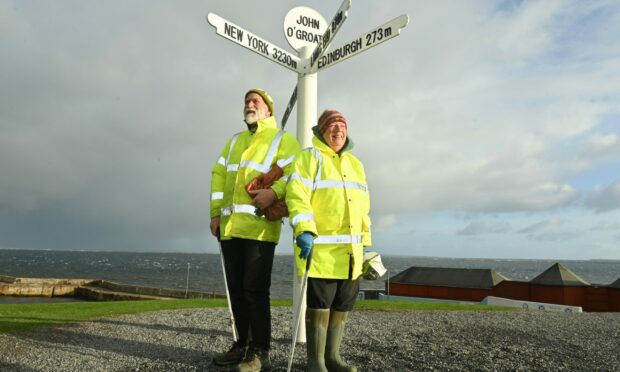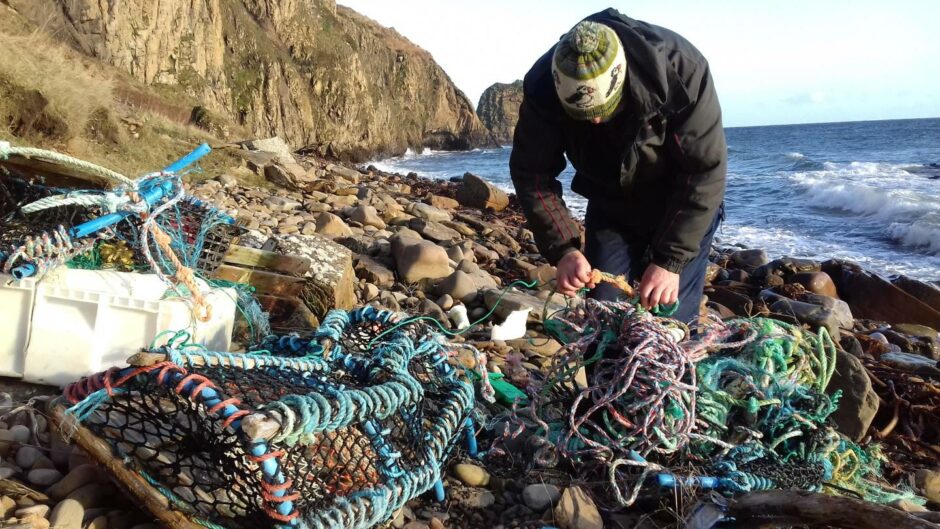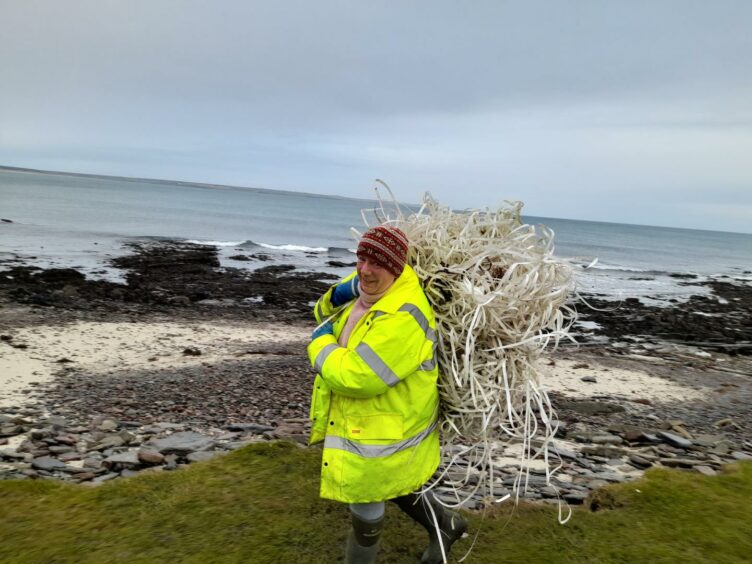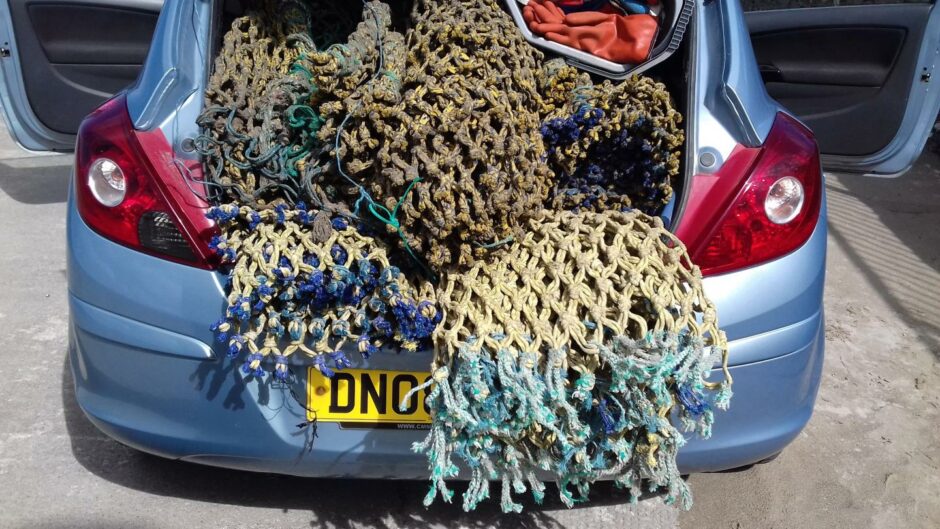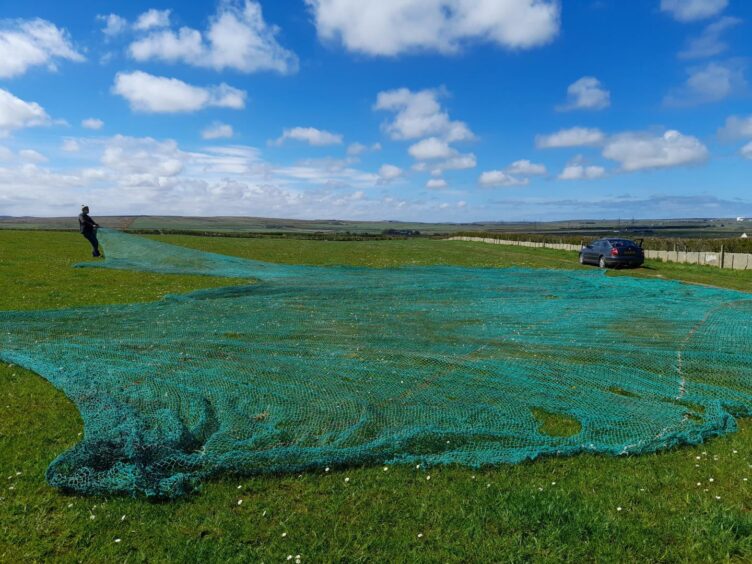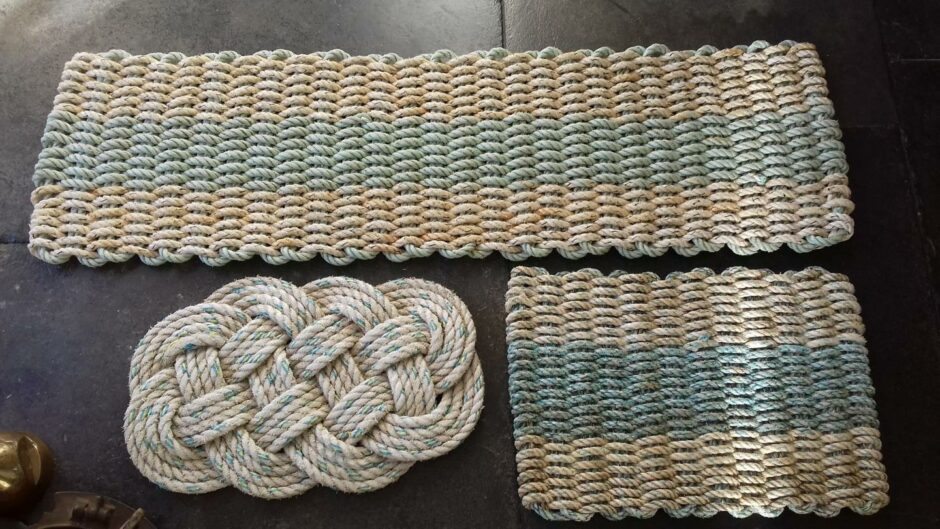A set of false teeth, a single Croc shoe and a missile target drone are among the more unusual items found by volunteers cleaning up some of mainland Scotland’s most northerly beaches this year.
The most common polluting items retrieved by the Caithness Beach Cleans litter picking group were pieces of plastic fishing gear including buoys, ropes and nets.
A body was also retrieved, though it’s not what you might think.
“We spotted it from afar and it was very freaky,” said Dorcas Sinclair, one of the founding members of the group. “When we got closer it turned out to be a dummy.”
Collecting 36 tonnes of plastic hasn’t been easy
Altogether Caithness Beach Cleans has collected more than 15 tonnes of plastic litter alone in the last 12 months.
The group was first set up in 2019 by Dorcas and her husband Allan who live in Thurso.
Since then it has grown to around 40 active members who have collectively picked up 36 tonnes of plastic pollution since they began.
“Allan and I go for walks on the beach a lot, particularly at Dunnet Beach and we just started picking up bits of fishing rope and filling up buckets with litter,” Dorcas said, remembering back to the early days of the group.
“But the more we did it, the worse it seemed to get.
“I remember thinking ‘how could there be more?’”
Sadly, there will always be more. But at least Dorcas and Allan are no longer alone in their fight to keep mainland Scotland’s most northern beaches free of pollution.
And despite the challenges posed by coronavirus restrictions, volunteers carried out beach cleans throughout the region as often as they could in 2021.
Finding masks and McDonald’s cups while beach cleaning in Caithness
This year, personal protective equipment featured heavily in the litter they picked up, with discarded masks and gloves washing up daily.
“This is a new thing,” said Dorcas, “but now we can’t do a beach clean without seeing them.”
Less common are drinks bottles and cans. “They probably only make up about 2% of what we pick up,” Dorcas said. “We do see McDonald’s cups and such, but mostly it’s fishing gear.”
Creels, floats, pots, buoys, nets and ropes make up the majority of pollution on these northern beaches.
“I really wish they were all labelled so we’d know where they all came from,” Dorcas said.
“It’s common for us to pick up creels and pots from Nova Scotia. There they are all registered and you can see where they came from.”
This isn’t common practice in the UK but Dorcas wishes it was. She’d also like to see GPS trackers attached to big nets.
At the very least, she’d like to have a record introduced of what is actually put offshore. “That way it could at least be tracked,” she said.
One man’s trash is another man’s… doormat?
The group recycles what they can and try to reuse as much as possible.
Creels and other bits of fishing gear which are found in good condition are left by group members in prominent positions. It’s hoped that fishermen put them back into service.
But Dorcas and Allan have come up with clever ways of repurposing other bits they find.
“Usually the rope we get is terribly tangled,” said Dorcas.
“Allan spends ages untangling it and lays it all out in the garden for the rain to clean, then we give it a power wash.”
After it’s cleaned, the pair weave the old pieces of rope into doormats which are sold to raise money for litter picking equipment.
Creel hooks are given a new life as wheelie bin clips. “It stops all the lids from flipping open in storms,” Dorcas explained.
Though the group has been gradually seeing less litter on certain Caithness and Sutherland beaches, the problem is far from solved.
“There is 60 or 70 years of plastic laying in the sea and getting washed up by every storm and high tide,” Dorcas said. “This is just the start.”
For more information and to get involved, visit the Caithness Beach Cleans Facebook page.
